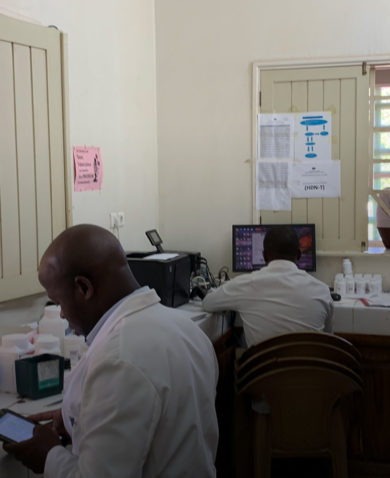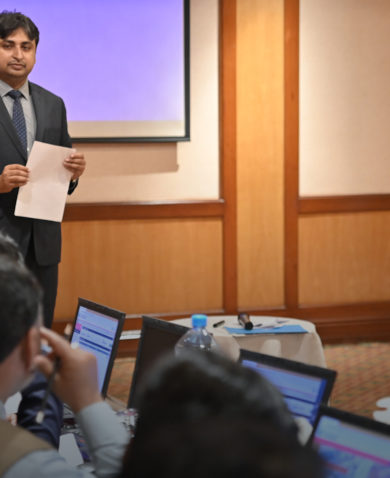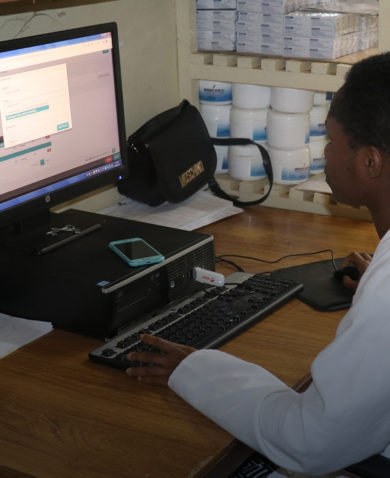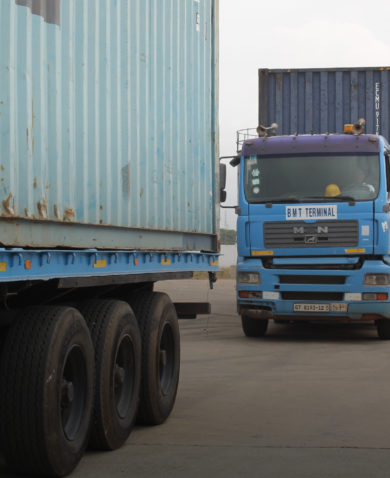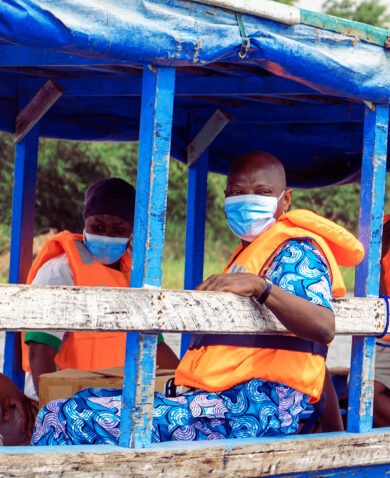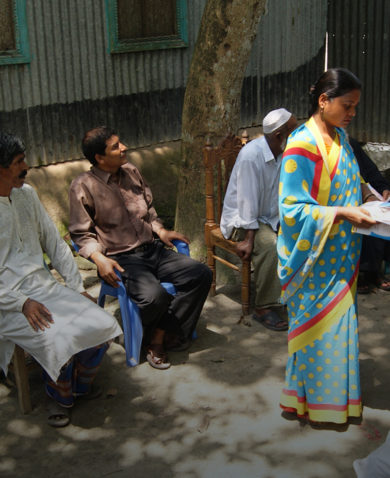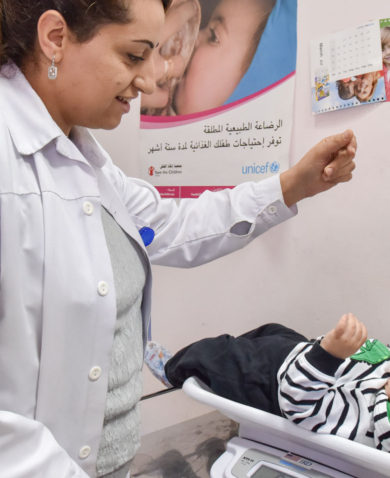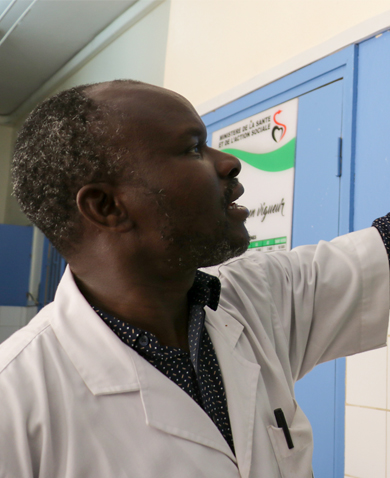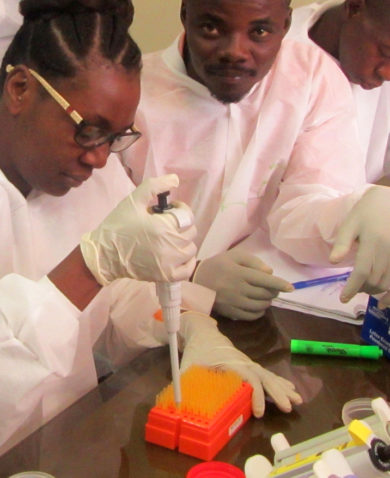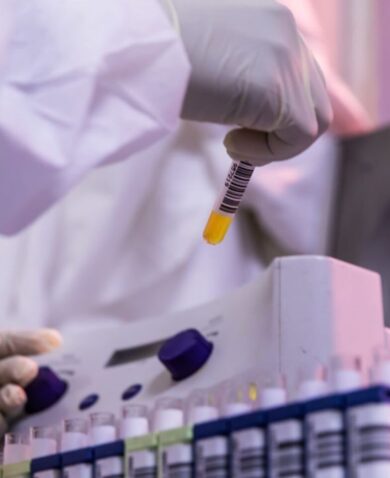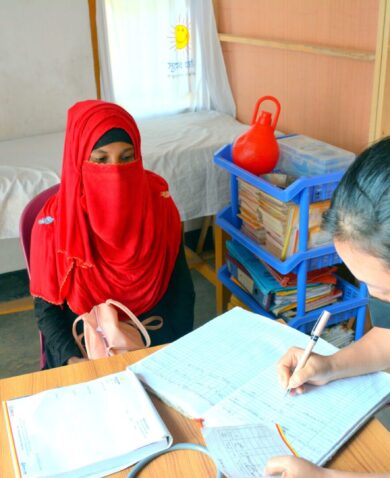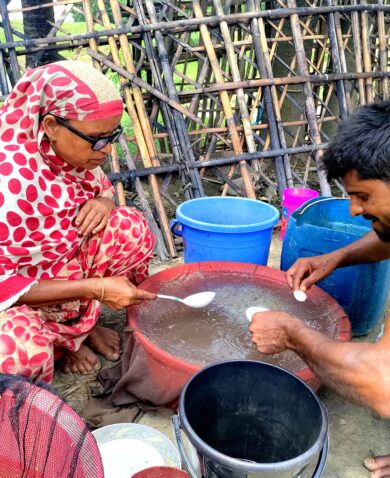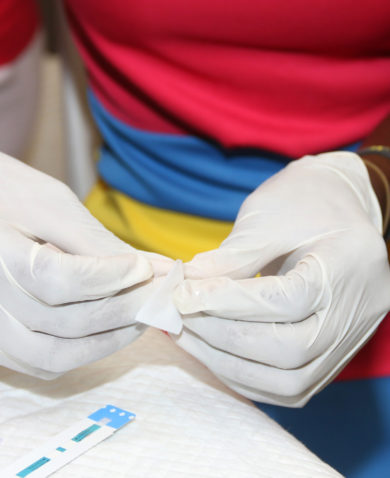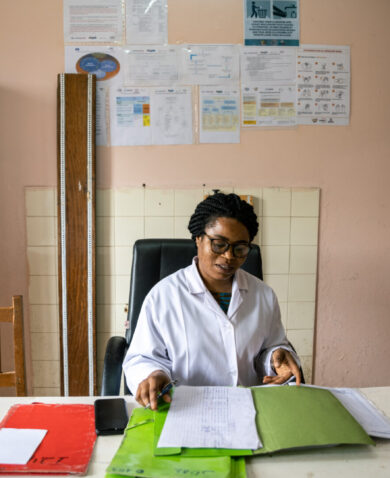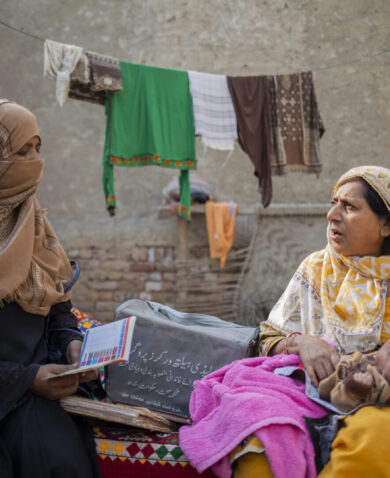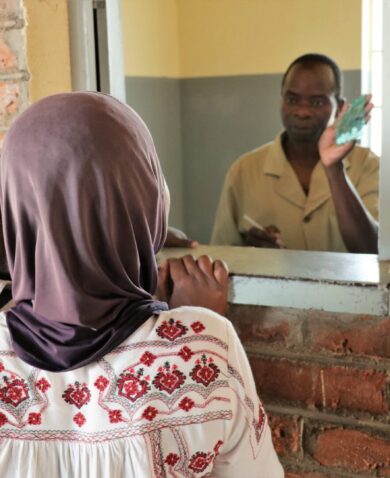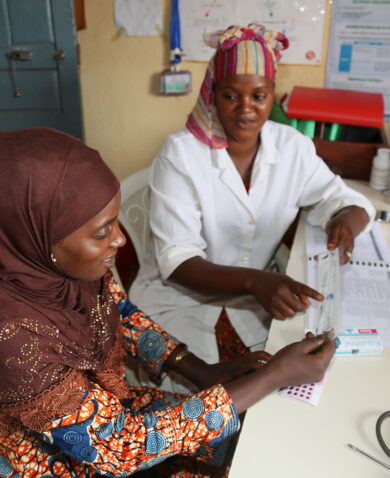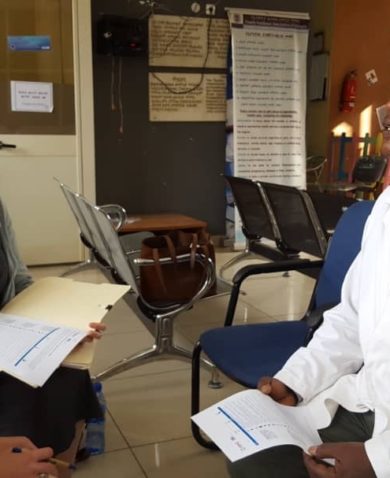After coming into the program with no health background, Josée now provides services to 17 health facilities, including seven private health centers. “I mainly work at the health facility level where I support the health staff to prevent stockouts, analyze their data, and submit logistics reports in a timely fashion,” Josée said. This ensures that medicines are stored under conditions that allows them to maintain their therapeutic properties.

The YLPP serves health zones around Benin by ensuring that young people like Josée are trained to verify that commodities are being received and stored properly, helping to avoid inconvenient stockouts. The YLPs are imbued with a sense of responsibility to ensure that their communities are always well-stocked to meet the health needs of the people, giving them a sense of ownership over their work, strengthening their future career prospects, and motivating other young professionals to pursue a similar path. To succeed in the program, “You need to like what you are doing and put a lot of pride in your work so you will do it right the first time,” Josée says. “You need to establish a balance between delegating tasks to people and micro-managing them.” By giving young professionals practical skills and knowledge through training, the GHSC-TA Francophone TO project ensures that a new generation can serve the community for the foreseeable future.
Scaling Up
The initial cohort of 15 YLPs was assigned to 10 health zones around Benin. At the beginning of the program, there was resistance from existing health facility counterparts who felt that YLPs were being sent to supervise or audit them. With time, however, health facilities were able to see the benefits of having the YLPs around. Reporting rates steadily improved, stockout rates dropped rapidly, and they are now recognized as essential members of the health team.
In 2018, the reporting rate for logistics data in most health zones was less than 20 percent. During the first quarter of 2019, the reporting rate increased to a remarkable 92 percent. These reports are critical because the snapshot created by the logistics data enables pharmacies and hospitals to carry the medicines needed most by the people that they serve. YLP reports also affect the management of health facilities by providing feedback and suggestions for improvements in the facilities where they work. YLPs are trained to step in when a supply chain actor might not be available for a particular task. Support from YLPs can extend beyond assessing logistics data from warehouses and pharmacies into community interactions on broader health services. Océane participates in council meetings in the lakeside commune of Sô-Ava, and, as a result, has seen a heightened interest of the town hall in matters relating to their health. One way the commune has benefitted from the presence of YLPs is their advocacy, in coordination with community members, for a fleet of motorized boats to be used to deliver health commodities to health facilities in Sô-Ava, thus using its lakeside location as an advantage and not a deterrent.

In January 2020, the GHSC-TA Francophone TO recruited 15 additional YLPs, placing a total of 30 by the end of the year. The coverage of the YLPs had increased from 10 to 18 health zones, covering 29 communes, and the program’s progress was shared with over 200 representatives from health zones around the country, USAID, and implementing partners like UNICEF and UNFPA. Another 77 YLPs are expected to be placed this year with the support of the Sahel Women Empowerment Demographic Dividend (SWEDD), funded by the World Bank in Benin. This will ensure will coverage for all communes.
Adapting to New Challenges and Looking to the Future
The COVID-19 pandemic presented a host of new global challenges, and YLPs have been able to contribute to Benin’s response as part of a government policy that established containment zones within the perimeter of areas around Cotonou, Abomey-Calavi, and Porto Novo. These higher population areas required additional support because of COVID-19 and the YLPs were able to step in to assist with the management of commodities flowing in. YLPs received special training on protocols to follow during the pandemic and were provided with personal protective equipment. Although the pandemic slowed program interventions, making it difficult for Océane to carry out in-person training with clerks at health facilities, she organized online sessions and calls with the clerks and the heads of health centers to ensure that her work could continue uninterrupted. In December 2020, when health supply chain stakeholders held a series of meetings throughout Benin to present on the progress of the program, local government and Ministry of Health counterparts were able to share their experiences and lessons learned working alongside the YLPs. This allowed the health zones to share and adopt ideas amongst one another, creating a dialogue on the sustainability and scalability of the program.
The YLPP approach creates a career development path for young professionals who can sustain logistics support for local government in countries where health professionals can be scarce. YLPs like Océane and Josée are now seasoned supply chain actors, empowered with the skills necessary to make a positive and sustained impact within their communities. With the level of training provided by YLPP, a lack of health supply chain experience need not be a deterrent for young professionals looking to get involved in the field. By training the next generation of supply chain professionals, the YLPP expects to strengthen health supply chains in communities around Benin for today, tomorrow, and years to come.




